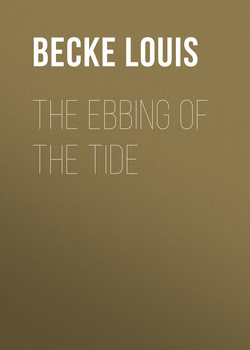Читать книгу The Ebbing Of The Tide - Becke Louis - Страница 6
AT A KAFA-DRINKING
ОглавлениеI
The first cool breaths of the land breeze, chilled by its passage through the dew-laden forest, touched our cheeks softly that night as we sat on the traders’ verandah, facing the white, shimmering beach, smoking and watching the native children at play, and listening for the first deep boom of the wooden logo or bell that would send them racing homewards to their parents and evening prayer.
“There it is,” said our host, who sat in the farthest corner, with his long legs resting by the heels on the white railing; “and now you’ll see them scatter.”
The loud cries and shrill laughter came to a sudden stop as the boom of the logo reached the players, and then a clear boyish voice reached us—“Ua ta le logo” (the bell has sounded). Like smoke before the gale the lithe, half-naked figures fled silently in twos and threes between the cocoanuts, and the beach lay deserted.
One by one the lights gleamed brightly through the trees as the women piled the fires in each house with broken cocoanut shells. There was but the faintest breath of wind, and through the open sides of most of the houses not enough to flicker the steady light, as the head of the family seated himself (or herself) close to the fire, and, hymn-book in hand, led off the singing. Quite near us was a more pretentious-looking structure than the others, and looking down upon it we saw that the gravelled floor was covered with fine, clean mats, and arranged all round the sides of the house were a number of camphorwood boxes, always—in a Samoan house—the outward and visible sign of a well-to-do man. There was no fire lighted here; placed in the centre of the one room there stood a lamp with a gorgeous-looking shade, of many colours. This was the chief’s house, and the chief of Aleipata was one of the strong men of Samoa—both politically and physically. Two of our party on the verandah were strangers to Samoa, and they drew their chairs nearer, and gazed with interest at the chief and his immediate following as they proceeded with their simple service. There were quite a number of the aua-luma (unmarried women) of the village present in the chief’s house that evening, and as their tuneful voices blend in an evening hymn—
“Matou te nau e faafetai”—we wished that instead of four verses there had been ten.
“Can you tell us, Lester,” said one of the strangers to our host, “the meaning of the last words?—they came out so clearly that I believe I’ve caught them,” and to our surprise he sang the last line—
Ia matou moe tau ia te oe.
“Well, now, I don’t know if I can. Samoan hymns puzzle me; you see the language used in addressing the Deity is vastly different to that used ordinarily, but I take it that the words you so correctly repeated mean, ‘Let us sleep in peace with Thee.’ Curious people these Samoans,” he muttered, more to himself than for us: “soon be as hypocritical as the average white man. ‘Let us sleep in peace with Thee,’ and that fellow (the chief), his two brothers, and about a paddockful of young Samoan bucks haven’t slept at all for this two weeks. All the night is spent in counting cartridges, melting lead for bullets, and cleaning their arms, only knocking off for a drink of kava. Well, I suppose,” he continued, turning to us, “they’re all itching to fight, and as soon as the U.S.S. Resacca leaves Apia they’ll commence in earnest, and us poor devils of traders will be left here doing nothing and cursing this infernal love of fighting, which is inborn with Samoans and a part of their natural cussedness which, if the Creator hadn’t given it to them, would have put many a dollar into my pocket.”
